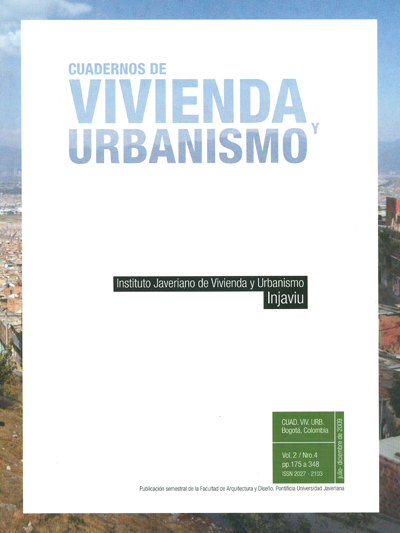Abstract
The migration flow and the tendency of the "mégapolizacion" of the cities carries strong impacts in itself to the territory, whereas fast urbanization does not take into account the different parameters of environmental sustainability. This article approaches another way to allow for public space from its thermal behavior. The aim is to establish the relations between urban development, microclimate and its impact on the thermal comfort of the citizen. The adopted methodology includes two tools: (1) thermal quantification with measurements taken in the field (air temperature, relative humidity and air velocity) that will form the climatic context for the answers to a survey (2) that will serve to obtain a simplified evaluation of thermal comfort. It is possible to think that a direct relation exists between thermal comfort, urban development and place of residence of the citizen who explains how the urban space is used.
This journal is registered under a Creative Commons Attribution 4.0 International Public License. Thus, this work may be reproduced, distributed, and publicly shared in digital format, as long as the names of the authors and Pontificia Universidad Javeriana are acknowledged. Others are allowed to quote, adapt, transform, auto-archive, republish, and create based on this material, for any purpose (even commercial ones), provided the authorship is duly acknowledged, a link to the original work is provided, and it is specified if changes have been made. Pontificia Universidad Javeriana does not hold the rights of published works and the authors are solely responsible for the contents of their works; they keep the moral, intellectual, privacy, and publicity rights.
Approving the intervention of the work (review, copy-editing, translation, layout) and the following outreach, are granted through an use license and not through an assignment of rights. This means the journal and Pontificia Universidad Javeriana cannot be held responsible for any ethical malpractice by the authors. As a consequence of the protection granted by the use license, the journal is not required to publish recantations or modify information already published, unless the errata stems from the editorial management process. Publishing contents in this journal does not generate royalties for contributors.


